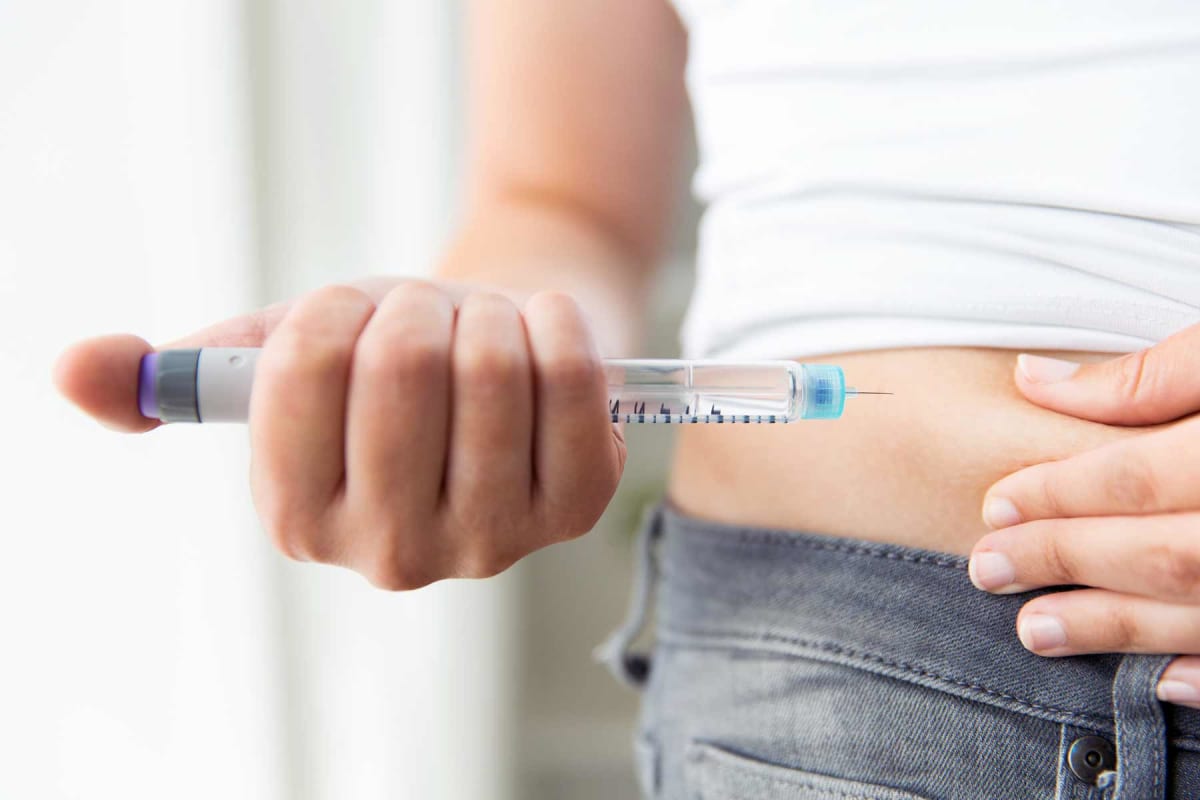
How much does insulin cost?
How much does insulin cost?
$35 monthly price cap for most patients
Insulin cost
The cost of insulin for most patients is now $35 per month or less. In 2024, major insulin manufacturers cut prices by 70% to 78% using price caps and savings programs. The Inflation Reduction Act also capped monthly insulin costs at $35 for Medicare beneficiaries, improving affordability and access to this critical medication.
| Patient type | Average monthly cost |
|---|---|
| Insured patient | $35 max out-of-pocket cost |
| Uninsured patient | $35 monthly insulin price cap |
| Medicare patient | $35 monthly insulin price cap |
About 8.4 million Americans rely on insulin and until recently nearly 1 in 4 patients could not afford the life-saving medication. As a result, patients resorted to rationing their doses which led to severe health consequences and even death. In response to this health crisis, manufacturers made key changes to improve insulin affordability.
Cost of insulin by manufacturer
While insulin prices vary depending on the location, insurance coverage, and pharmacy, the average out-of-pocket cost has seen significant changes in 2024. Major manufacturers have reduced prices and implemented programs to cap costs at $35 per month for qualifying patients.
| Manufacturer | Insulin type | Manufacturer price list (per vial) |
Qualifying patient monthly price |
|---|---|---|---|
| Novo Nordisk | NovoLog (rapid-acting) |
$72.34 | $35 or less |
| Novo Nordisk | Levemir (long-acting) |
$107.85 | $35 or less |
| Novo Nordisk | Novolin (various types) |
$48.20 | $35 or less |
| Eli Lily | Lispro Injection (non-branded) |
$25.00 | $35 or less |
| Eli Lily | Humalog (rapid-acting) |
$160 per 5-pack of pens | $35 or less |
| Eli Lily | Humulin (various types) |
Price varies | $35 or less |
| Sanofi | Lantus (long-acting) |
$150.00 | $35 or less |
| Sanofi | Afrezza (inhaled insulin) |
Price varies | Price varies |
These programs aim to improve access and affordability of insulin for people with diabetes, addressing concerns over "insulin price gouging" and the high costs patients have faced:
Novo Nordisk's NovoCare Patient Assistance Program (PAP) offers insulin at $35 or less per month for qualifying patients.
Eli Lilly's Insulin Value Program caps their Lilly insulin cost at $35 monthly for both insured and uninsured patients.
Sanofi’s Patient Connection Program provides insulin at reduced costs for eligible patients.

Insulin pump cost
The cost of an insulin pump varies significantly depending on the features, manufacturer, and your insurance coverage. Without insurance coverage, a new insulin pump costs $5,500 to $10,000+, plus an additional $3,000 to $6,000 annually for necessary supplies like infusion sets and insulin cartridges.
An insulin pump is a small, wearable device that continuously delivers rapid-acting insulin through a narrow plastic tube (catheter) inserted under the skin. It is an alternative to multiple daily insulin injections using pens or syringes and can be a valuable diabetes management tool for some patients.
Insulin pump pros and cons
Insulin pumps are a convenient alternative to insulin injections, but they require a significant commitment from the patient. The decision to use a pump should be made carefully with input from the healthcare team and based on the individual's lifestyle and preferences.
| Benefits | Drawbacks |
|---|---|
|
|
Insulin FAQs
What is insulin?
Insulin is a hormone that allows cells to use glucose from the bloodstream. It is essential for the proper regulation of blood sugar levels in the body. People with diabetes either do not produce enough insulin (type 1) or cannot effectively use the insulin they produce (type 2). Insulin therapy is a critical part of managing diabetes.
What does insulin do?
Insulin is a critical hormone that regulates blood sugar levels, facilitates glucose uptake by cells, maintains glucose homeostasis, and prevents the development of diabetic ketoacidosis (DKA), a serious complication of diabetes. Proper insulin function is essential for overall metabolic health.
What is insulin resistance?
Insulin resistance is a condition where the body's cells become less responsive to insulin, leading to high blood sugar levels and an increased risk of developing type 2 diabetes and other health problems if left untreated.
Does type 2 diabetes require insulin?
Most patients with type 2 diabetes do not require insulin and instead manage with diet, exercise, and oral meds. However, patients may need insulin initially for high blood sugar, when other meds fail, during pregnancy, or in response to surgery or stress. Work with your doctor to develop a personalized treatment plan for your type 2 diabetes.
Questions to ask your healthcare provider or pharmacist
When discussing your insulin needs with your healthcare provider or pharmacist, gather all the necessary information to ensure proper usage and address any concerns. Here are some questions to get you started:
What is the purpose of insulin and how does it work in the body?
What type of insulin have you prescribed for me, and why?
When and how should I take this insulin medication?
Are there any potential side effects, and what should I do if they occur?
How do I properly store and handle this medication, especially when traveling?
How will we monitor whether the insulin is working effectively?
Are there any interactions between the insulin and my other medications?
What should I do if I miss a dose or become ill?
Is there a generic version available, and how does it compare?
How does an insulin pump work, and what are the different types available?
What are the pros and cons of using an insulin pump?
What should I know about disconnecting the insulin pump and traveling with it?